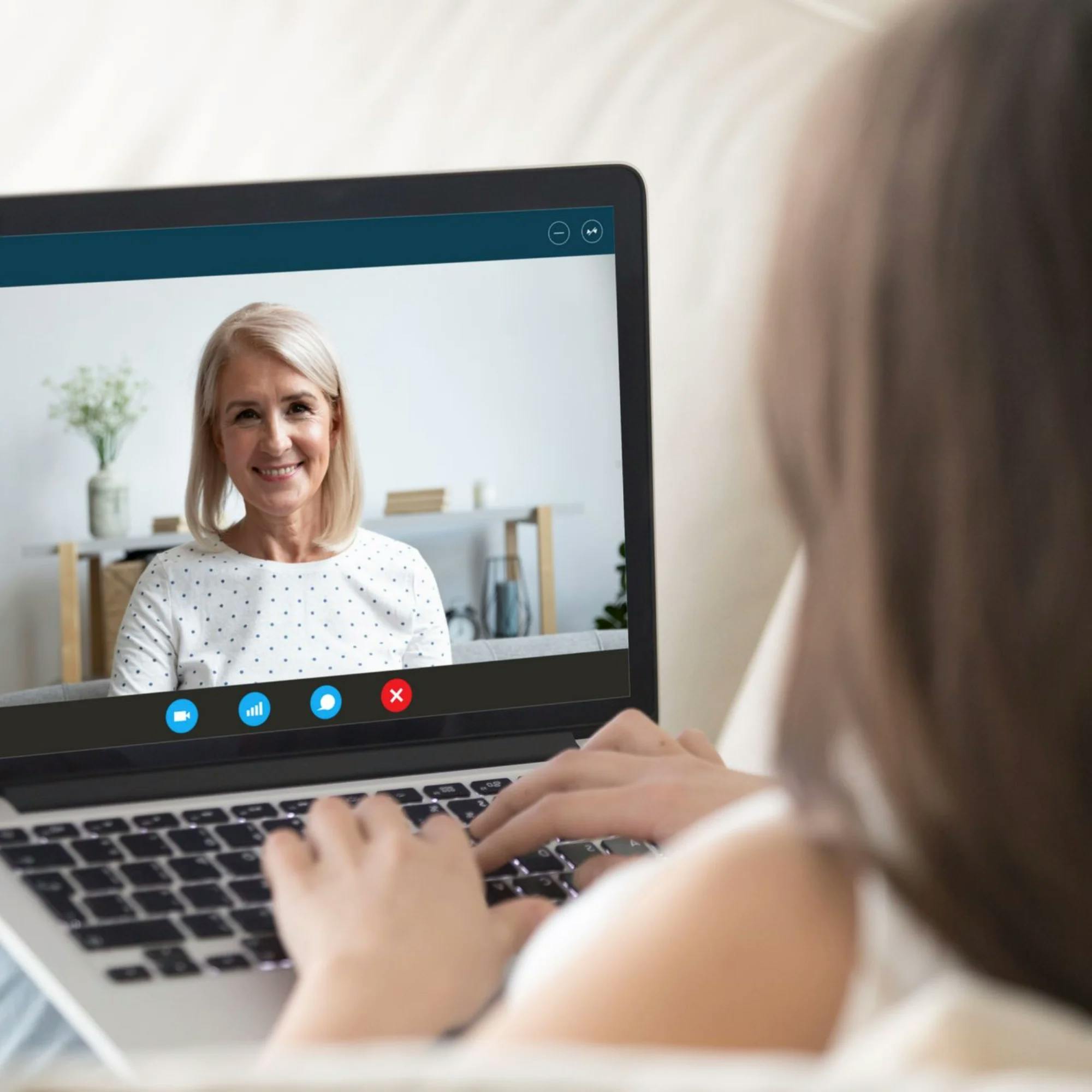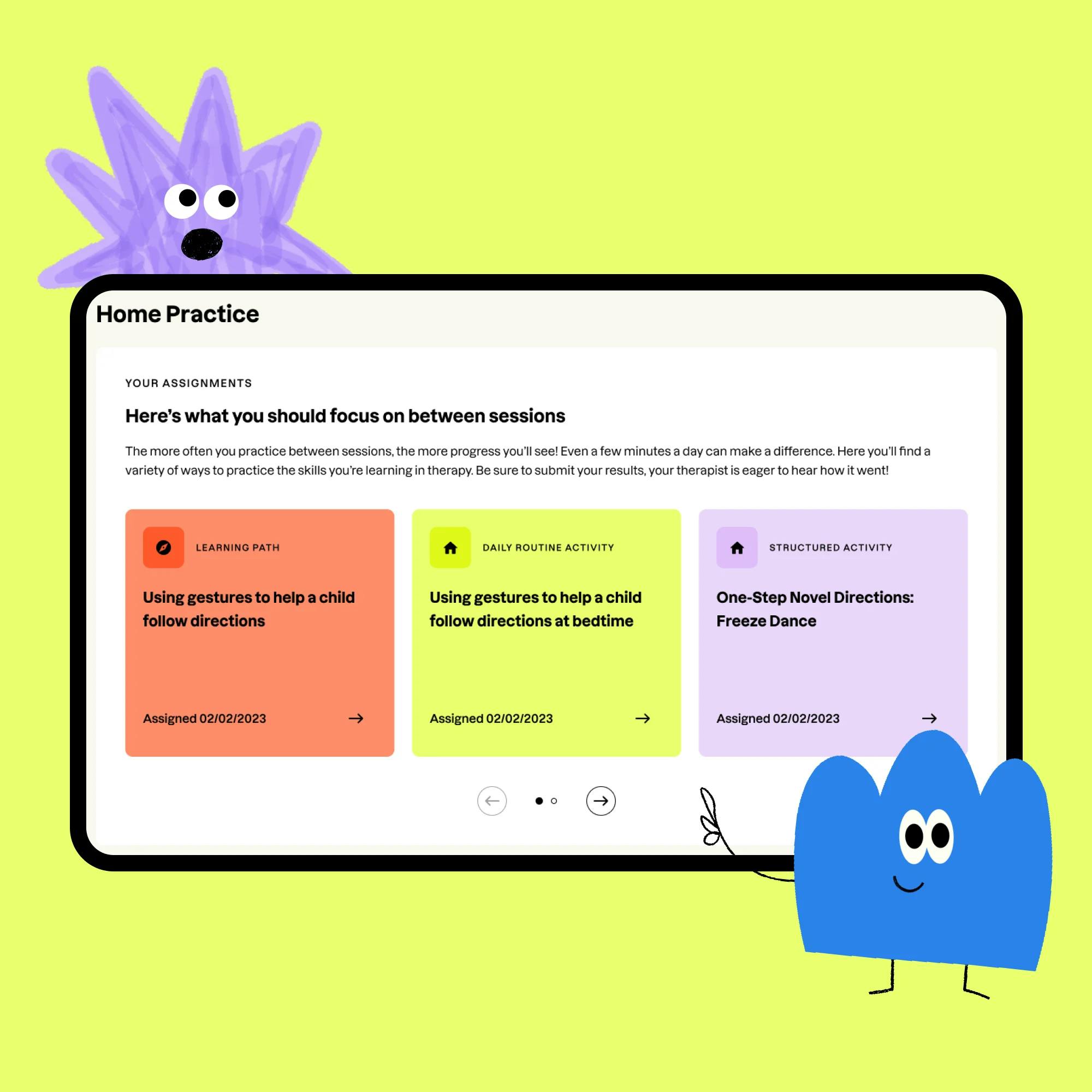At Expressable, when a new speech-language pathologist (SLP) joins our team, we understand that they could be transitioning from a variety of different settings. That often includes schools.
As a prior school-based SLP myself who moved to online speech therapy, I am passionate about supporting other SLPs who are interested in that transition. That’s why I now serve as the Clinical Talent Acquisition Manager at Expressable, so I can be hands-on in helping SLPs make the switch!
As part of that effort, we offer this helpful guide to transitioning from school-based therapy to telehealth private practice. Read on to learn some important factors to consider and tips for finding the right private practice for you.
Why some SLPs leave the school setting
Schools can feel like a familiar landscape, with multiple breaks and summers off, collaboration with teachers and other staff members, and interactions with a variety of students. While providing speech therapy in schools is rewarding, the demands can feel unrelenting.
SLPs often contend with large group sizes and even larger caseloads, balancing neverending schedule changes with the time constraints of administrative tasks. They also have to navigate the challenges of limited resources and caregiver interactions.
For me, the school setting came with a variety of obstacles that left me feeling overwhelmed. I knew it was time to make a change.


What SLPs should look for in a telehealth private practice
When I embarked on my career search, I was looking for a position that provided me with flexibility, prioritizing work-life balance while also focusing on high-quality client care. I wanted a company whose culture fosters a growth mindset and collaboration, with a mission for expanding access to care to those in need. Now, almost three years in, I feel fortunate to have found that in Expressable.
For speech therapists considering a shift to telehealth private practice from the school setting, here are some factors to evaluate:
Schedule flexibility
When considering a private practice, you’ll want to find out what kind of scheduling options are offered. One of the most immediate benefits of transitioning to telehealth can be the flexibility of your schedule.
Unlike the school system’s rigid 8-to-3 structure, Expressable allows you to create a workday that fits your lifestyle. Whether you’re an early bird who thrives in the morning, you prefer a midday start, or you need a break in your day to pick up your children from school, telehealth can often accommodate your preferences.
I work Monday through Thursday from 8 a.m. to 6 p.m. On Fridays, I have the whole day off to spend one-on-one with my daughter, which has been invaluable.
Work-life balance
Perhaps one of the biggest rewards of telehealth is the ability to achieve a healthier work-life balance. Without the commute to and from work, endless meetings, additional administrative tasks, and fixed school schedules, I now have more time to focus on a productive work day. I’m not distracted by colleagues coming into my office and affecting my ability to complete documentation or other tasks. And I finally feel that I can be more present with my family in the mornings and evenings.
Enhanced work-life balance has helped me become more passionate about the work I’m doing, and it’s given me more energy for both my clients and my family.


Clinical development and growth opportunities
School-based SLPs are typically placed at a specific school and/or program, providing speech services to a set age range of students. Often, students are placed on a therapist’s caseload whether or not the SLP has that specific clinical experience or background. With limited access to professional development, resources, and training, it can feel daunting and overwhelming.
When considering a private practice, ask about clinical areas served and how SLPs are matched with clients. At Expressable, clients are matched based on a speech therapist’s clinical experience and the areas they feel competent evaluating and treating. Since Expressable provides services across the entire scope of speech therapy practice, it also provides clinical development opportunities to learn and grow into working with new client populations.
I have truly enjoyed the variety of clients I’ve been able to work with at Expressable. I’ve grown into new clinical competencies such as public/professional speaking, accent modification, and early childhood.
Building relationships with clients and families
In the school setting, with large caseload sizes and limited time, sessions are often conducted in groups as large as four to five students. Interactions with parents and caregivers are limited to yearly individualized education plan (IEP) meetings or quarterly progress report meetings. This makes it challenging to help children carry over and generalize their targeted speech therapy goals.
In telehealth, client interactions are 1:1 and individualized. SLPs can partner with parents and caregivers and truly focus on providing high-quality care. Building rapport can feel a little different in a virtual environment. You may miss the casual in-person connections, but telehealth provides unique opportunities for family involvement. Parents can observe and participate in sessions, which are scheduled at a time that works for them. This fosters a family-oriented approach to therapy, which leads to better outcomes for the client.


Collaboration with other SLPs
In the school setting, SLPs often work within a community that includes teachers, special education teachers, occupational therapists, and social workers. However, in my experience, I was always the sole SLP at my school placement. I felt isolated, craving connection and collaboration with other SLPs. I consistently had to advocate to the team and school staff about speech language pathology, our scope of practice, and the services I could provide to students.
Find out how the private practice you’re considering promotes collaboration and connection among its SLPs. Something unique to a telehealth private practice like Expressable is that we only provide speech therapy services, and we have more than 200 SLPs on our team. This means a plethora of opportunities for mentorship, support, and collaboration. Whether you need a professional opinion, new tips and tricks, or a resource to share with a client, you'll have a community of SLPs you can connect with and depend on.
Access to technology
Depending on the school district, funding, and access to resources, schools can often feel like they’re a decade behind when it comes to technology. In the school setting, I often had to use my own resources, create digital materials, and track student therapy attendance on paper, then turn in that attendance sheet each quarter. A huge bonus of telehealth is that it relies heavily on technology, making SLPs’ jobs easier and more efficient.
Technology can make a huge difference to the time you spend on documentation and other tasks! Ask how the practice uses it and what they make available to SLPs. At Expressable, SLPs use platforms designed specifically for speech therapy. Our tools make it easier to engage clients with home practice activities, digital games, and educational resources. This enhances the client experience and reduces the amount of time SLPs spend on documentation and other administrative tasks.
There can be a learning curve involved in mastering these platforms. I found that investing time in training and familiarizing yourself with teletherapy tools has been essential to ensuring a smooth transition from a school setting to a private practice telehealth company.


Summing up the switch: From schools to private practice
Moving from the school system to private telehealth practice is a significant shift in both your work and your lifestyle. It comes with its own set of rewards and challenges. For me, telehealth has been an opportunity to achieve a healthy work-life balance, design a schedule that suits my lifestyle, grow in my career, connect with other SLPs, and make a meaningful impact on clients and families.
For SLPs seeking a change, telehealth offers a chance to redefine what a fulfilling and balanced career looks like. If you’ve been contemplating the transition, I can’t encourage you enough to take the leap!
Why SLPs choose Expressable
I feel fortunate that I found a company like Expressable when making the transition from a school setting to a telehealth private practice. With Expressable’s strong and collaborative SLP community; focus on high-quality, family-centered care; emphasis on work-life balance; and the ever-growing resources they provide to therapists, it truly is a one-of-a-kind company.
Here are some additional benefits to working at Expressable:
Comprehensive compensation and benefits package
iMac desktop and two iPads for conducting evaluations and using apps in therapy
Access to speechpathology.com and our in-house education team for CEUs, and to Super Duper and SLPnow for therapy resources
In-house EHR system for documentation
AI companion tool to make evaluation and session documentation faster and more efficient
Online portal for clients and families to access plan of care goals, home practice programs, their therapy schedule, billing information, and more
Access to mentorship programs and subject matter experts
Learn more about working at Expressable
Expressable employs SLPs from around the country. If you’re an SLP looking for remote work, check out our current openings, or reach out to us at recruiting@expressable.io. You can also sign up for our career newsletter, Elevate, to stay up-to-date on all things career-related at Expressable. We'd love to connect with you!
How Expressable Can Help
Concerned your child isn't reaching age-expected milestones? Looking for communication support from a professional? Expressable is a national online speech therapy practice serving children and adults. We treat all major areas of communication and feeding, offer flexible hours including evenings and weekends, and accept most major health insurance plans. We’re proud to have earned more than 3,000 5-star reviews from our clients (4.9/5 average).
Our therapy model is centered on parent and caregiver involvement. Research proves that empowering caregivers to participate in their loved one’s therapy leads to better outcomes. That’s why we combine live, 1-on-1 speech therapy with personalized education and home practice activities for faster progress.
Communication is more than words. It’s how we share how we feel and show who we are. We’re here to help you or your child do just that.










